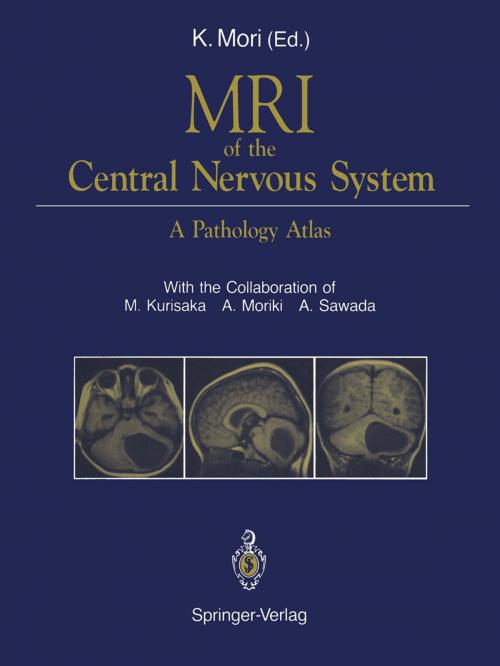MRI of the Central Nervous System
A Pathology Atlas
Nonfiction, Health & Well Being, Medical, Medical Science, Biochemistry, Surgery, Neurosurgery| Author: | M. Kurisaka, A. Moriki, A. Sawada | ISBN: | 9784431681359 |
| Publisher: | Springer Japan | Publication: | December 6, 2012 |
| Imprint: | Springer | Language: | English |
| Author: | M. Kurisaka, A. Moriki, A. Sawada |
| ISBN: | 9784431681359 |
| Publisher: | Springer Japan |
| Publication: | December 6, 2012 |
| Imprint: | Springer |
| Language: | English |
In the past, CT was the first choice among diagnostic measures for neurological diseases, and MRI was con- sidered to be a supplementary test. However, with the introduction of an ever increasing number of devices, MRI is being used routinely, and it is possible that eventually CT will become supplementary to MRI. This guide to the practical use of MRI has been compiled bearing these considerations in mind. Minimal working knowledge of the simple operations - that does not require details about the technical production of television images - is all that is required in order to obtain information from the views. Thus, even if a clinician is not thoroughly familiar with the theories of MRI, he can use it as efficiently as he does the CT scan. In this book, the theoretical aspects of the principles of MRI are deliberately simplified and the text can be used solely as an atlas. In the introduction, useful general features of MRI interpretation are described and itemized, and major diseases of the central nervous system are presented.
In the past, CT was the first choice among diagnostic measures for neurological diseases, and MRI was con- sidered to be a supplementary test. However, with the introduction of an ever increasing number of devices, MRI is being used routinely, and it is possible that eventually CT will become supplementary to MRI. This guide to the practical use of MRI has been compiled bearing these considerations in mind. Minimal working knowledge of the simple operations - that does not require details about the technical production of television images - is all that is required in order to obtain information from the views. Thus, even if a clinician is not thoroughly familiar with the theories of MRI, he can use it as efficiently as he does the CT scan. In this book, the theoretical aspects of the principles of MRI are deliberately simplified and the text can be used solely as an atlas. In the introduction, useful general features of MRI interpretation are described and itemized, and major diseases of the central nervous system are presented.















